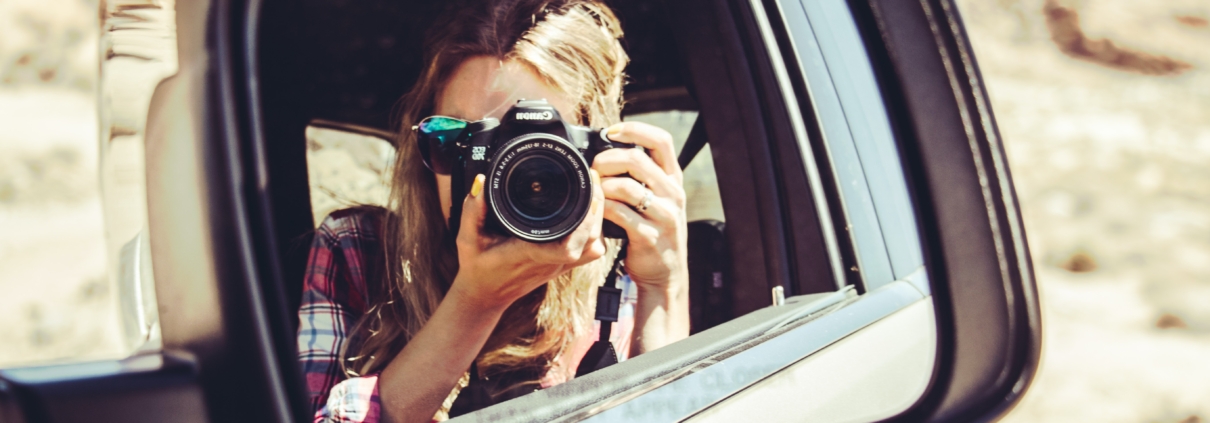Who do you think you are?
You know those moments when something hits you just the right way?
Like when you’ve heard a concept before, but then someone says it in a new way that makes sense to you, or catches you in just the right frame of mind, and suddenly it clicks? I had that happen last week watching a TED talk by Caroline McHugh called The Art of Being Yourself.
McHugh is a speaker, author, coach, founder, and all around badass. She also has a killer Scottish accent, so maybe that’s what got me. Either way, she talks about the different layers of identity in a way that I hadn’t quite heard before and found really helpful.
It helps to think of this model of identity as four concentric circles. Moving from superficial to deep, we have Perception, Persona, Ego and Self.
* * *
At the most superficial level, there’s perception, what other people see/think/believe when they encounter us. This is the piece that is completely out of our hands, as frustrating and sometimes agonizing as that can be. I’ve spent most of my life straining against this simple fact of life, believing that if only I tried harder or did something better, I should be able to control what other people think of me, I should be able to make them see me.
In truth, what other people think about us isn’t really about us. It’s about them. It’s about their own egos, and the ways that we either threaten or bolster the image they have of themselves and the world. Wherever we show up in our lives, every single person we encounter will have a unique perspective of us. While a huge part of me wishes it were different, I also feel a big sigh of relief that it’s not all up to me. I’ve wasted A LOT of mental energy over the years trying to control what others think of me, trying to prove that I’m good enough, that there’s more to me than meets the eye. Relief is letting all that wasted effort and misplaced responsibility fall away.
One thing I find helpful here is considering the fact that there will be as many different perceptions of me as there are people on the planet. Every single human I engage with has their own history, their own biases, and their own ego fears, and all of those things influence how that person will experience me. When I really let that truth sink in, it hits me that I couldn’t possibly control that, no matter how hard I try. So while it might hurt when I feel judged or misunderstood, at least I can let go of the self-blame that says “if only I did better…”
We are responsible only for how we show up. We are not responsible for how we are received. There’s power in remembering this. Freedom too.
* * *
Persona is the way we want other people to see us. It’s the image we are trying to project into the world to influence the way others perceive us. Your persona is unique to you because it’s based on your beliefs and your values, sort of an idealized self. But it’s not YOU at your core. Persona is an image, a positive distortion like a ‘personal brand’ or a social media presence, polished to perfection. Persona is about you, but it isn’t you.
For example, I want other people to see me as smart, kind, confident and interesting. Those are qualities that I value, things I aspire to be, so I want others to see them when they look at me. And while I may be those things much of the time, or at least when I’m at my best, I can also be moody and petty and insecure and flat out boring. Some days all I want to do is lie on the couch and watch old Sex and the City episodes, which I can’t imagine qualifies as either a marker of intelligence or an interesting way to spend a Saturday. This is where things get tricky with personas. If we’re busy trying to prove to the world that we’re one thing, that leaves a lot of other parts of ourselves we’re trying to keep under wraps, fearful of being exposed.
* * *
Going a level deeper, our ego is the way we see ourselves. Much as they feel like they are, our egos are still not us. Our egos are beliefs we hold about ourselves, ideas of our own specialness, and also the ways we imagine ourselves to be unacceptable or flawed or uniquely burdened. Our egos exist to maintain our sense of separateness from others, so they love to engage in comparisons to keep those walls up. I’m as guilty of this as anyone, but aren’t we all addicted to comparing ourselves with others?
We make comparisons in order to feel better about ourselves when we’re feeling low, and to feel worse about ourselves a good portion of the time too. Or at least I do. This is a pattern I’ve noticed recently. Any time I start thinking “damn, I’ve come a long way in the last few years” and start feeling good about myself and my future prospects, my ego jumps in to say “Well what about Nadia? She’s running two successful businesses.”
In an instant, I feel less connected to my friend. Instead of simply being two souls on our own paths who have much to share with and learn from each other, suddenly we’re competitors fighting over the same piece of pie. Her success is my failure. What an isolating way of approaching the success of someone I love. But this is exactly what the ego wants, to keep us safe by keeping us separate.
* * *
What struck me most about the ego portion of Caroline’s talk was the idea that it’s possible to develop an ego based on what she calls interiority, rather than one based on comparison with others. Interiority is all about being yourself. Comparing yourself only to your own values and beliefs, and what you think matters most. This is a big part of the coaching process, helping people to get clear on what they actually care about, what excites them and pleases them and brings them joy, then using this as the blueprint against which to evaluate how they’re living. I still catch myself in comparison mode more often than I’d like, but being focused on my own values helps me catch myself in the act, and reorient myself toward what really matters.
Though she doesn’t explicitly say it in the talk, I do also think there is tremendous value in making comparisons with ourselves. And I don’t mean thinking “I used to be skinnier back in high school” and feeling badly about that. I mean comparing yourself favorably to past versions of you. I mean taking the time to notice and appreciate your progress on the things that matter to you. I have x more clients than I had last year. I never used to have a daily journaling practice, and look at me now… You get the idea. Feeling a sense of progress is one of the most potent motivators out there, and it feels good too.
So go ahead and make comparisons, just do them with yourself, and in a way that serves, rather than diminishes you.
* * *
Finally, at the deepest level, there’s the self. Not the you that you wish to be, not the you that others see, and not even the you that you think you are. Just you. Pure presence. The one who notices a particularly beautiful sky, or appreciates the warmth of a coffee cup in your hands or the way the leaves glow with green after the rain. The human soul that exists underneath all of the thoughts and feelings and fears and stories. I don’t know about you, but this is a part of myself I’d like to spend more time inhabiting.
In the rare moments of pure presence I have experienced, the rest of the layers simply fall away. It’s just me out there in the waves, feeling the cold water against my bare hands and face, or on the yoga mat, muscles burning and breath heavy, but right there, 100% present in my body and in the moment. As far as I can tell, these moments of presence are what make life most rewarding, but in our increasingly distracted culture, they can be hard to come by.
So what brings you back to yourself? What place or practice quiets all of the noise and allows the fears to fall away?
Whatever it is, I hope you find it. We need our egos to survive in this crazy world, but it sure is nice to take a break from them once in a while.
Wishing you a break from the noise this holiday season,
Karen


